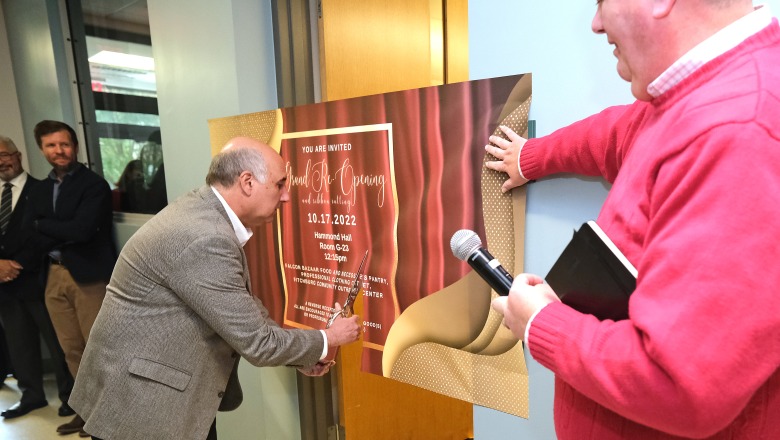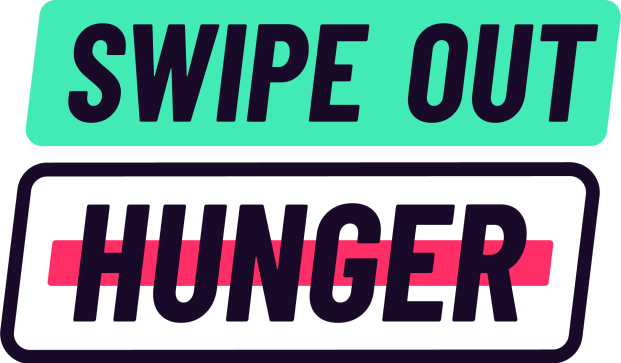
Fitchburg State University has been awarded $3,000 to combat food insecurity through a grant from Swipe Out Hunger.
The grant was announced at the ribbon-cutting for Fitchburg State’s new community outreach center in Hammond Hall. The center includes the Falcon Bazaar, which has for years supported campus community members with food insecurity, and the professional clothing closet that serves students preparing for careers. The Bazaar, open daily for members of the campus community, is supported by the university and donations.
The grant will support the purchase of software for inventory management and visit tracking.
Associate Director of Student Development Shane Franzen said the Bazaar has already served more than 60 students this academic year.
“The Fitchburg State Community has once again embraced our students,” Franzen said. “I have never seen a program have such a response. Everyone from the Trustees to our students have come together to assist students who may be experiencing some type of food insecurity. The Bazaar has served as a free food source for many students over the past few years who would have gone hungry.”
“Unfortunately, these are the realities of the times,” University President Richard S. Lapidus said during a ceremony rededicating the expanded center. “We strive to put students in a position where they can be successful. The campus community has really stepped up and supported this important initiative.”
“College students’ lives are extremely complicated,” added Vice President for Student Affairs Laura A. Bayless, noting local and statewide statistics that show food insecurity is a concern for many students. “Addressing these concerns lets our students be engaged the way we want them to be.”
Swipe Out Hunger is the leading nonprofit addressing hunger among college students. Founded by a group of friends at UCLA in 2010, it has grown campus-by-campus into a national movement across all 50 states.
